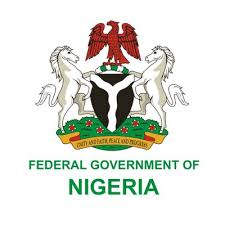At the 11th West African Association of Public Accounts Committees (WAAPAC) conference held recently in Abuja, the Speaker of the House of Representatives, Abbas Tajudeen, raised alarm over Nigeria’s ballooning debt profile. He said Nigeria’s public debt had now reached a critical point and pose a significant threat to fiscal stability, development, and the welfare of future generations unless urgent action is taken.
Relying on data from the Debt Management Office (DMO), Tajudeen put total public debt at ₦149.39 trillion, about $97 billion, with domestic borrowing making up 53 percent and external borrowing accounting for 47 percent. The disturbing figure was enough to trigger alarm with the Speaker warning on the urgency of reforming oversight mechanisms and ensuring that all borrowing decisions are anchored on transparency, prudence and tangible social impact.
Coming against the backdrop of the 411 percent increase in federal revenue since the removal of fuel subsidy, the continuous increase in debt almost at geometric proportion has raised concern that the existing infrastructural gap in the country bellies the foreign loans being procured by the federal government.
The surge in debt value was significantly influenced by the performance of the Naira. This led Nigeria’s Debt-to-GDP ratio to equally surge to 52.25% by the end of 2024 and 52.7% by August 2025, exceeding the country’s legal debt limit of 40%. However, following the rebasing of the economy and the GDP adjusted upward to N372.82 trillion, the debt ratio was reduced to 38.8 per cent, bringing it within the legal threshold.
The debt-to-GDP ratio, which remains high despite the rebasing of the economy, poses a threat to Nigeria’s fiscal sustainability. It can lead to a situation where debt servicing costs consume a large portion of the budget, reducing funds available for critical sectors like healthcare, education, and social services. This is already the case and is driving the need for further loans to finance the government’s ambitious infrastructural programme. This potentially creates a vicious cycle whereby the government is compelled to continuously seek additional loans.
Although on September 2, 2025, President Bola Tinubu declared that his government had met its revenue target for 2025 well ahead of schedule and would no longer rely on borrowing to fund its budget, he had already secured the nod of the National Assembly to his July request for a $21.5 billion external loan, including a $2 billion foreign currency bond and a N757.98 billion bond to settle pension liabilities under the Contributory Pension Scheme. The President is still going ahead with the approved loan requests.
Despite concerns from Speaker Tajudeen and other Nigerians, especially stakeholders in the real sector, the Presidency seems to be on a different wavelength. The Executive Chairman of the Federal Inland Revenue Service (FIRS), Zacch Adedeji, said the government will continue borrowing in spite of significant revenue inflows in recent months as it is part of the administration’s broader economic strategy.
It makes the need for stronger oversight, transparent borrowing practices, and a collective resolve to ensure that tangible economic and social returns match every naira borrowed imperative. However, whatever are the administration’s economic agenda, breach of the country’s debt limit, signals the strain on fiscal sustainability. Justifying continuous borrowing on the approval of the National Assembly alone, even though lawful, is inadequate. As Speaker Tajudeen stated, while debt, when carefully managed, could serve as a tool for national growth, reckless accumulation of liabilities can be very damaging to the economy.
We wholeheartedly endorse the stance of the Speaker of the House of Representatives. The sourcing and utilisation of the massive loans procured in the past 10 years have not been adequately explained to Nigerians. And after exiting the debt earlier in this Fourth Republic, the country cannot afford a return to those dark days. The borrowing to spend, the mantra of the Muhammadu Buhari administration when the country’s foreign debt began a steep climb that defined that administration, can no longer be sustained.
We believe there are complimentary strategies to just borrowing to spend. Strengthening oversight mechanisms, improving reporting standards, and ensuring that all public funds are managed with integrity are crucial to prevent throwing the country back into the debt trap. Borrowing should always be channelled towards infrastructure, health, education, and industries that create jobs and reduce poverty.
If the critical factors that drive investment and economic growth, especially power and transportation are pursued, investors will be attracted to the real sector ,which will in turn create wealth.


